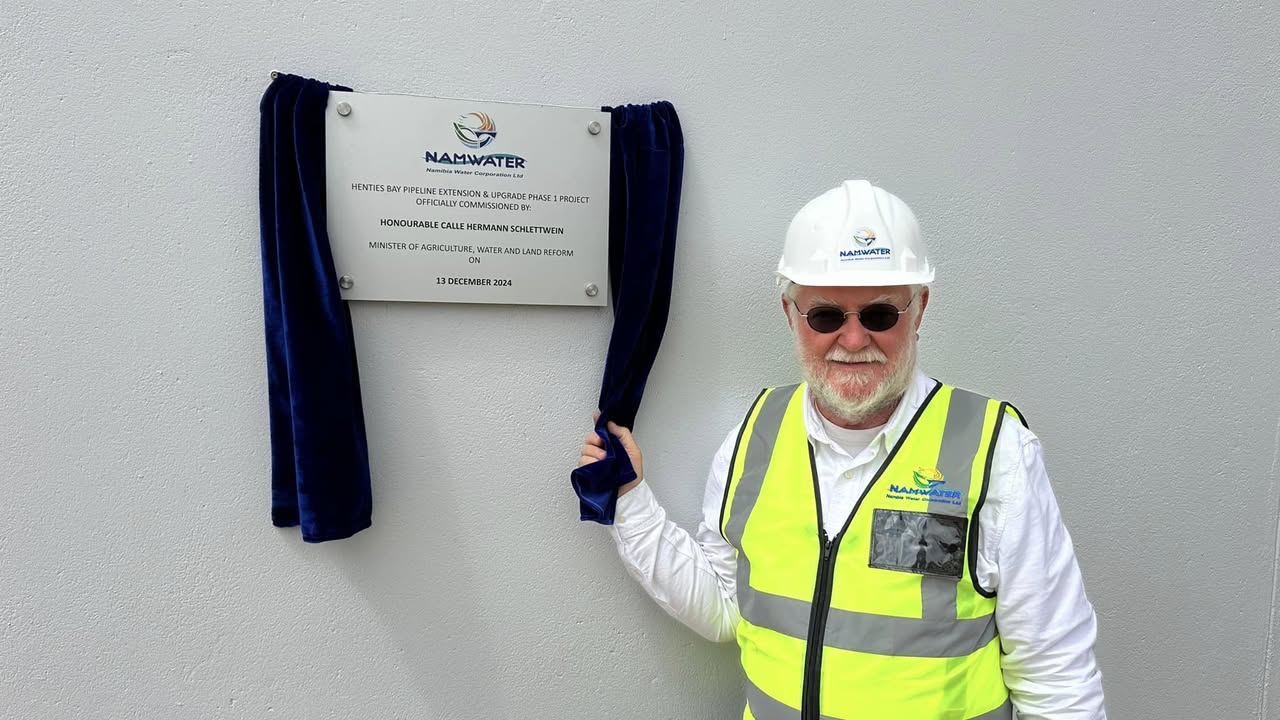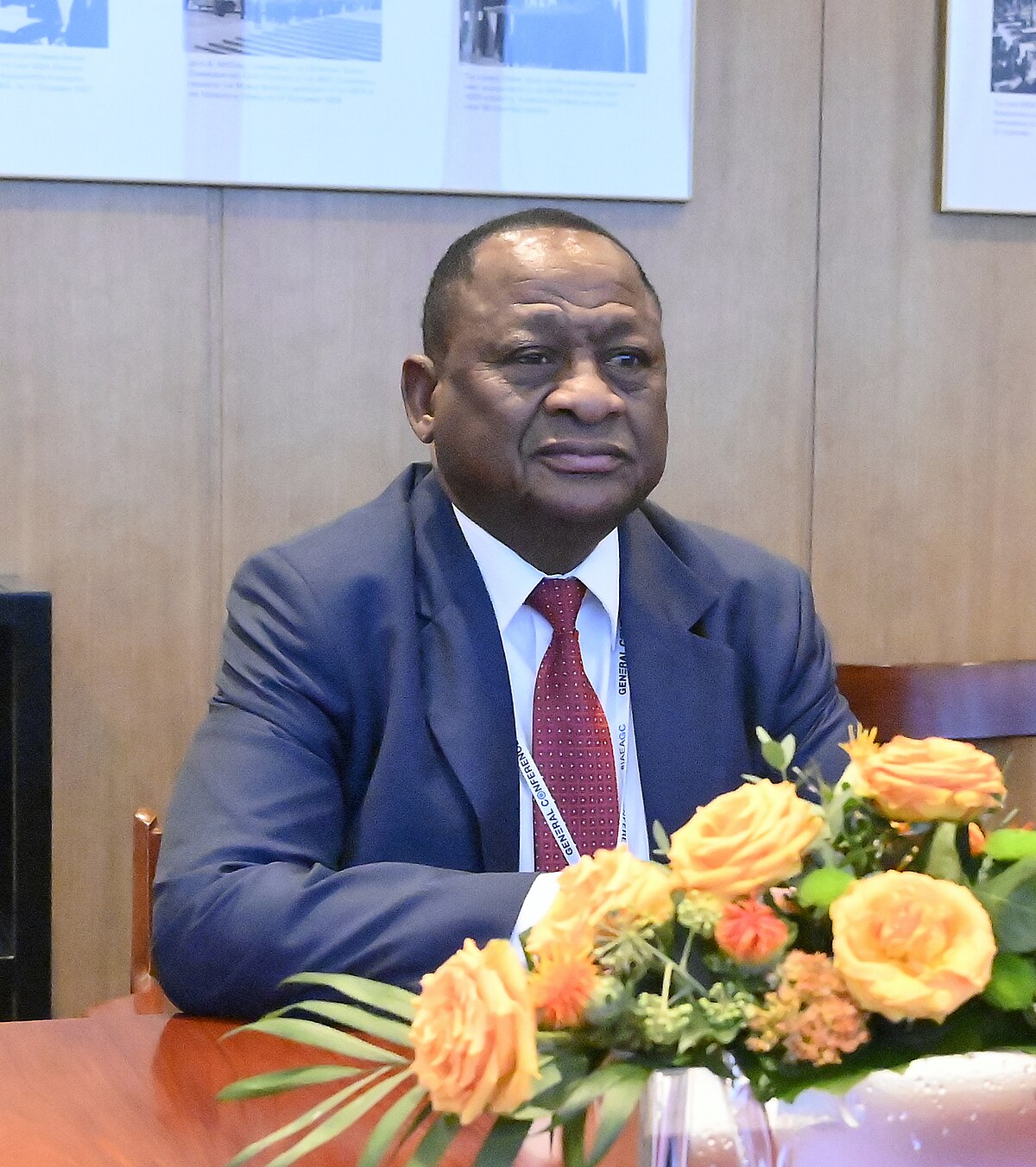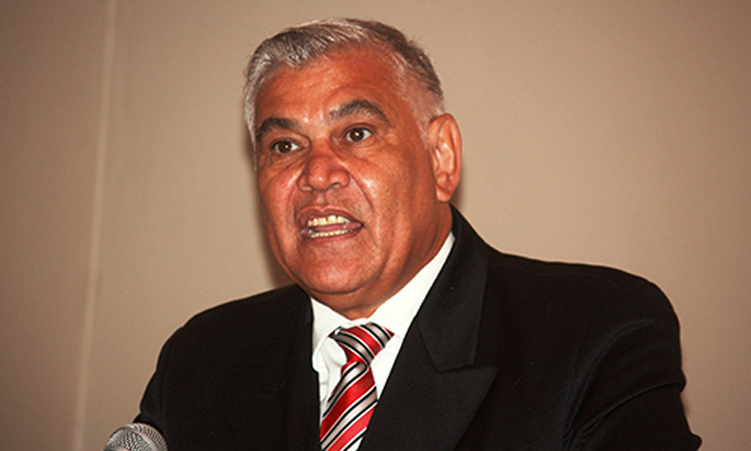GOVERNMENT has issued its first notice of expropriation.
The Namibian yesterday obtained a letter by Minister of Lands, Resettlement and Rehabilitation, Hifikepunye Pohamba, inviting the owner of the troubled Ongombo West farm, outside Windhoek, to name the price for the property. Two farms – both belonging to Hilde Renate Wiese – from where workers were controversially fired and evicted last year, have been targeted for the first ever expropriation of farms by the Government.The letter, dated May 10, is marked:”Intended acquisition of remaining portion of Ongombo West no 56 and portion A of the Farm Voigtskirch No.135″.The letter states that the move was taken in terms of the Agricultural (Commercial) Land Reform Act of 1995 and that the Minister “is entitled to acquire in the public interest, and in accordance with the provisions of the Act, agricultural land which the Minister considers to be appropriate in order to make such land available for agricultural purposes to Namibian citizens who do not own or otherwise have the use of agricultural land or adequate agricultural land, and foremost to those Namibian citizens who have been socially, economically or educationally disadvantaged by past discriminatory laws or practices”.The Ongombo West property is listed as being 3 600 hectares in size, while Voigtskirch is 403 hectares.In the notice the Minister expresses an “interest in acquiring the Property in the public interest and for the aforementioned purposes”.Although the workers won a court case against their eviction and dismissal from Ongombo West earlier this year, Wiese and her farm manager, Andreas Wiese, have not allowed them to live on the property.The workers and their families have continued to live in shacks in the riverbed less than 500 metres from the farmhouse, a sight that angered President Sam Nujoma so much that he warned during May Day celebrations that the continued abuse of labourers by farm owners would no longer be tolerated.He also warned that Ongombo West would be expropriated so that workers could be given a dwelling instead of perpetuating the sight of a mother breast-feeding her baby in a dry river.The Wieses first defied the court order that said workers were dismissed unlawfully and should be re-employed.They later allowed the labourers to return to work, but not to live on the farm as they had done before, leaving workers with no place to raise their livestock.Pohamba said in the letter:”You are cordially invited to make an offer to sell the property to the State and to enter into further negotiations in that regard.”This is the first step in Government’s expropriation programme:it leaves no room for the willing-buyer, willing-seller policy.Wiese has been given 14 days to respond.Last night Hilde Wiese declined to comment, first feigning ignorance and then later laughing, almost hysterically, saying she did not trust anyone.Pohamba, reached on his mobile phone, said he was unable to comment.”I am in a meeting, so I won’t be able to discuss the issue,” he said.The Namibia Agricultural Union and the Namibia Farmworkers Union could not be reached for comment.Two farms – both belonging to Hilde Renate Wiese – from where workers were controversially fired and evicted last year, have been targeted for the first ever expropriation of farms by the Government.The letter, dated May 10, is marked:”Intended acquisition of remaining portion of Ongombo West no 56 and portion A of the Farm Voigtskirch No.135″.The letter states that the move was taken in terms of the Agricultural (Commercial) Land Reform Act of 1995 and that the Minister “is entitled to acquire in the public interest, and in accordance with the provisions of the Act, agricultural land which the Minister considers to be appropriate in order to make such land available for agricultural purposes to Namibian citizens who do not own or otherwise have the use of agricultural land or adequate agricultural land, and foremost to those Namibian citizens who have been socially, economically or educationally disadvantaged by past discriminatory laws or practices”.The Ongombo West property is listed as being 3 600 hectares in size, while Voigtskirch is 403 hectares.In the notice the Minister expresses an “interest in acquiring the Property in the public interest and for the aforementioned purposes”.Although the workers won a court case against their eviction and dismissal from Ongombo West earlier this year, Wiese and her farm manager, Andreas Wiese, have not allowed them to live on the property.The workers and their families have continued to live in shacks in the riverbed less than 500 metres from the farmhouse, a sight that angered President Sam Nujoma so much that he warned during May Day celebrations that the continued abuse of labourers by farm owners would no longer be tolerated.He also warned that Ongombo West would be expropriated so that workers could be given a dwelling instead of perpetuating the sight of a mother breast-feeding her baby in a dry river.The Wieses first defied the court order that said workers were dismissed unlawfully and should be re-employed.They later allowed the labourers to return to work, but not to live on the farm as they had done before, leaving workers with no place to raise their livestock.Pohamba said in the letter:”You are cordially invited to make an offer to sell the property to the State and to enter into further negotiations in that regard.”This is the first step in Government’s expropriation programme:it leaves no room for the willing-buyer, willing-seller policy.Wiese has been given 14 days to respond.Last night Hilde Wiese declined to comment, first feigning ignorance and then later laughing, almost hysterically, saying she did not trust anyone.Pohamba, reached on his mobile phone, said he was unable to comment.”I am in a meeting, so I won’t be able to discuss the issue,” he said.The Namibia Agricultural Union and the Namibia Farmworkers Union could not be reached for comment.
Stay informed with The Namibian – your source for credible journalism. Get in-depth reporting and opinions for
only N$85 a month. Invest in journalism, invest in democracy –
Subscribe Now!






